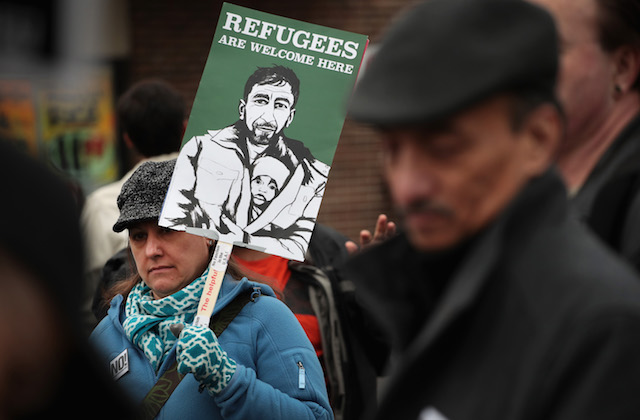After Secretary of State Mike Pompeo announced Monday (September 17) that the United States will cap the number of refugees it accepts in the coming fiscal year at 30,000—the lowest number since the Refugee Act was enacted in 1980—the Trump administration appeared to relent to bipartisan criticism and signaled that it will consult with Congress before making a final decision.
The 30,000 cap announced by Pompeo represents a 33 percent drop in refugee admittance from 45,000, the record low set last fiscal year. But on Tuesday (September 18), Charles Grassley (R-Iowa), chairman of the Senate Committee on the Judiciary, said the Trump administration has a legal obligation to seek counsel from Congress before proposing new refugee caps.
"While I appreciate the administration’s commitment to protecting national security and public safety by proposing a refugee cap, which accounts for the need to conduct adequate and thorough screenings of all who seek this benefit, it is imperative the agencies abide by their statutory mandate to consult with Congress before any number is proposed," Grassley said in a statement.
"Yet, for the second year in a row," Grassley continued, "the administration has willfully ignored its statutory mandate to inform and consult with Congress, including designated members of both the House and Senate Judiciary Committees, about the number of refugees to be admitted during the next fiscal year."
On Tuesday, the Department of State announced that it will consult with Congress before making a final decision of refugee caps.
"After those consultations with Congress, the president will then be able to make his determination,” Department of State spokesperson Heather Nauert told reporters. "The number that was announced yesterday may not be the final number."
Democrats blasted the administration for its retreat from global leadership and abandoning America’s role as a pillar of human rights for the world’s refugees.
"This historically low number betrays America’s values and relinquishes our leadership role in defending human rights," Senators Dianne Feinstein (D-Calif.) and Dick Durbin (D-Ill.) told press on Tuesday.
Driven by conflicts in Syria, Yemen and sub-Saharan Africa, the global refugee population has spiked in recent years, from 33.9 million in 1997 to 65.6 million in 2016, according to the United Nations.
Some 3 million refugees have settled in the U.S. since Congress approved the Refugee Act of 1980, with about 84,000 refugees accepted in the final year of the Obama administration. During fiscal year 2016, the highest number of refugees came from the Democratic Republic of Congo (16,370) and Syria (12,587), according to Pew Research Center.
